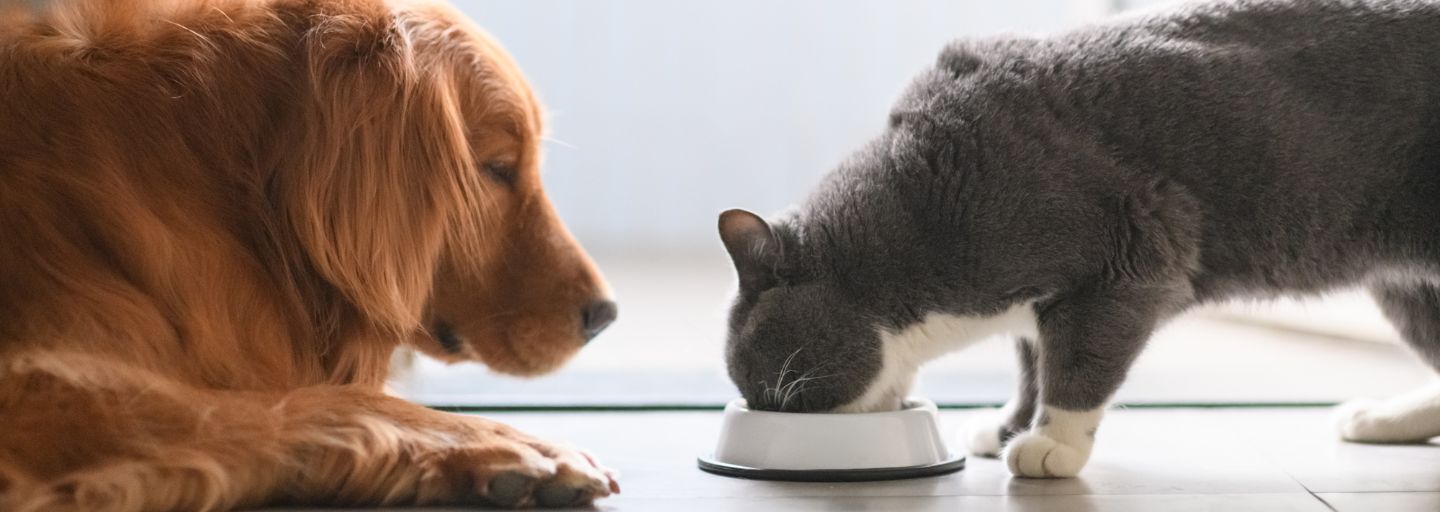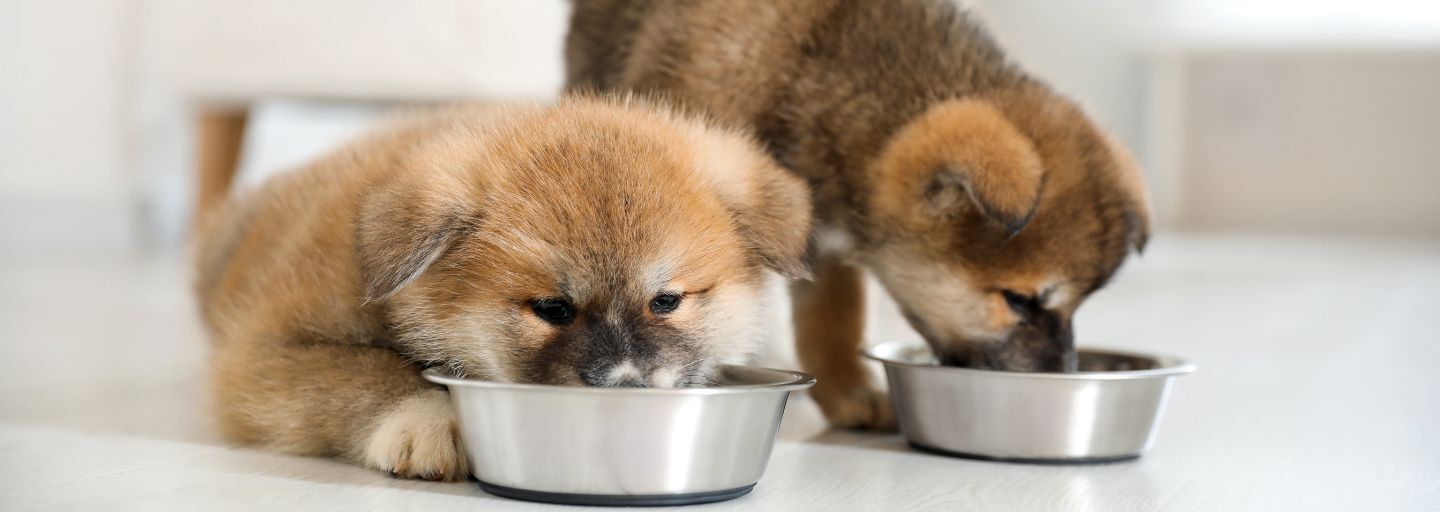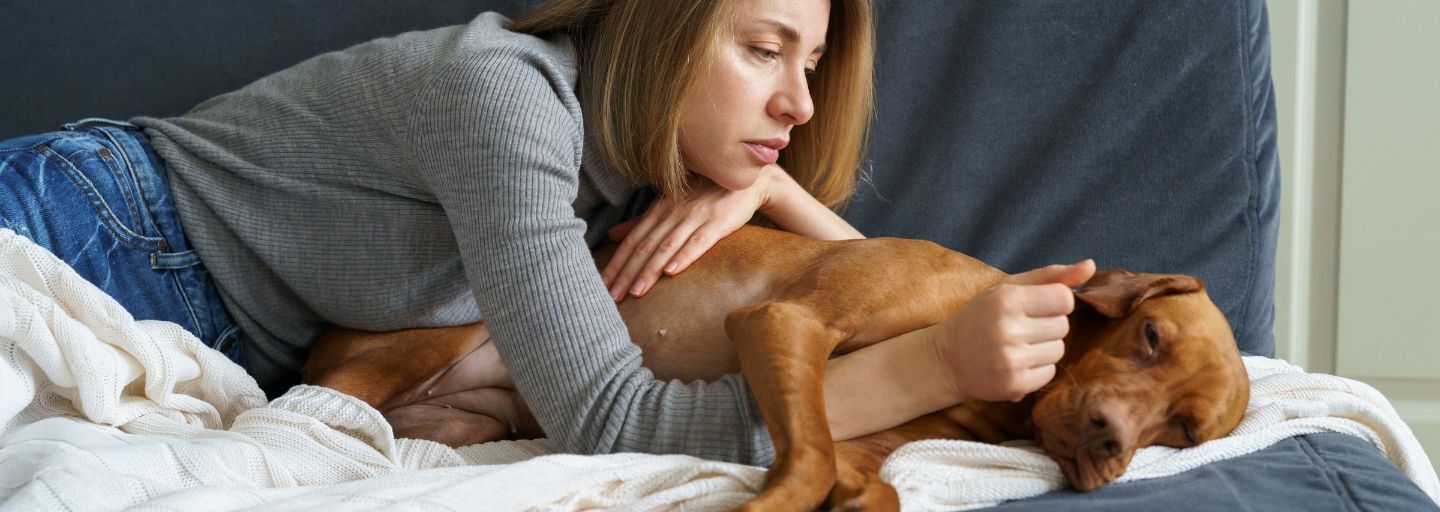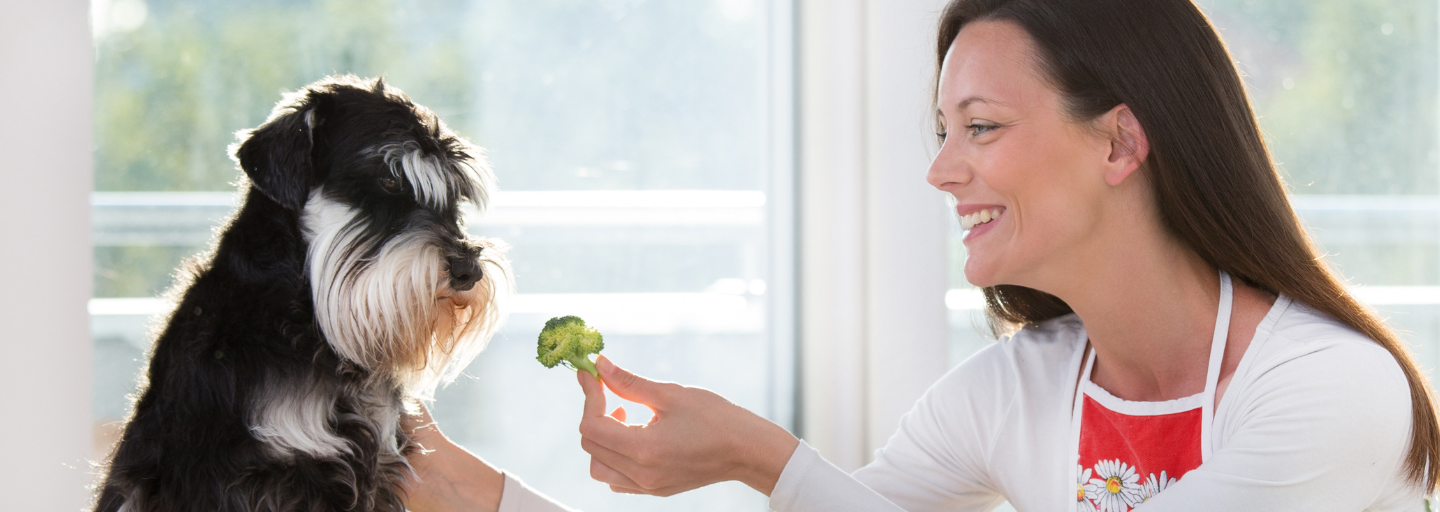As pet owners, we often find ourselves wondering if our furry friends can share the same food. If you have both a dog and a cat at home, you may have wondered whether it's safe for your dog to eat cat food. After all, dogs are known for their indiscriminate eating habits. However, it's important to understand that cats and dogs have different nutritional needs. While occasional consumption of cat food may not cause harm, it's best to keep their diets separate.
Why Cat Food May Not be Suitable for Dogs
Cat food is formulated to meet the unique nutritional requirements of cats. Here are a few key reasons why cat food is not suitable for dogs:
- Protein Content: Cats are obligate carnivores, which means they require a diet rich in animal-based protein. Their bodies are designed to efficiently process and utilise protein from meat sources. Cat food is formulated to meet their specific protein needs, often containing higher levels of animal protein than dog food. Dogs, on the other hand, are omnivores and can derive nutrition from both plant and animal sources. While dogs also require protein, their dietary needs are not as reliant on animal protein as cats.
- Taurine: Taurine is an essential amino acid for cats, and they cannot produce it in sufficient amounts on their own. Cat food is fortified with taurine to ensure they receive an adequate supply. Dogs, however, can synthesise taurine from other amino acids and do not have the same dietary requirement for taurine as cats. Feeding cat food to dogs may result in an imbalance of nutrients, including taurine deficiency.
- Fat Content: Cats require a higher fat content in their diet compared to dogs. Fat provides cats with essential fatty acids and a concentrated source of energy. Dog food typically contains lower fat levels to accommodate their different metabolic needs. Feeding cat food to dogs can lead to weight gain and other health issues associated with excessive fat intake.
- Nutrient Balance: Cat food is specifically formulated to meet the unique nutrient requirements of cats, including higher levels of certain vitamins and minerals. Dogs have different nutritional needs, and their food is formulated accordingly. Feeding cat food to dogs can lead to nutrient imbalances and deficiencies over time.
It's important to note that occasional consumption of cat food by dogs is unlikely to cause significant harm. However, consistently feeding your dog cat food as their primary diet can lead to nutritional imbalances and health complications over time. It's best to provide your dog with a balanced diet formulated specifically for their nutritional needs.
Nutrients Required by Dogs
Now, let's focus on the nutrients that dogs specifically need in their diet:
- Protein: Protein is an essential nutrient for dogs as it supports muscle development, tissue repair, and overall growth. Dogs require a balanced intake of high-quality animal-based protein to meet their dietary needs. Look for dog food that lists specific meat sources, such as chicken, beef, or fish, as the primary ingredients.
- Fatty Acids: Dogs need a sufficient intake of omega-3 and omega-6 fatty acids for healthy skin and coat, as well as for proper brain function. These essential fatty acids can be found in fish oil, flaxseed, and other plant-based oils. Dog food formulated with adequate levels of these fatty acids can help support your dog's overall well-being.
- Carbohydrates: While dogs are primarily carnivorous, they can also benefit from a moderate amount of carbohydrates in their diet. Carbohydrates provide a source of energy and fibre. Look for dog food that includes whole grains, such as brown rice or oats, as well as vegetables and fruits.
- Vitamins and Minerals: Dogs require a balanced intake of vitamins and minerals to support their overall health. Essential vitamins include vitamin A, vitamin D, vitamin E, and the B vitamins. Minerals such as calcium, phosphorus, and zinc are also important for their well-being. High-quality dog food should provide these essential nutrients in appropriate amounts.
If you have concerns about your dog's diet or are considering making any changes, it's always recommended to consult with a veterinarian. They can provide guidance on selecting the appropriate dog food that meets your dog's individual needs and ensure they receive the proper nutrition for optimal health.
How to Prevent Dogs from Eating Cat Food
- Separate Feeding Areas: One of the most effective ways to prevent dogs from eating cat food is to establish separate feeding areas for your pets. Cats and dogs should have their own designated spaces where they can eat without interference. This can be achieved by feeding them in separate rooms or using baby gates to create separate feeding zones.
- Supervise Mealtimes: If you have both a dog and a cat, it's important to supervise their mealtimes to ensure they don't access each other's food. Feed them at different times or use feeding schedules to prevent any overlap. This way, you can monitor their eating habits and remove any uneaten food promptly.
- Elevated Feeding Stations: Consider using elevated feeding stations for your cat's food. Cats are natural climbers and feel more comfortable eating in elevated positions. This can help keep their food out of reach from dogs who may be tempted to sneak a bite.
- Use Pet-Specific Food Storage: Store cat food in containers or cabinets that are inaccessible to dogs. Dogs have a keen sense of smell and can be attracted to the aroma of cat food. By keeping it securely stored, you can prevent dogs from accessing it when you're not around.
- Train Your Dog: Training your dog to understand and respect boundaries is essential. Teach them commands such as "leave it" or "stay" to discourage them from approaching the cat's food. Consistent training and positive reinforcement can help reinforce good behaviour and prevent them from attempting to eat cat food.
- Feed High-Quality Dog Food: Ensure that your dog is receiving a balanced and nutritious diet that meets their specific needs. Feeding them high-quality dog food that provides the necessary nutrients can help satisfy their nutritional requirements and reduce their interest in seeking out cat food.
- Use Deterrents: If your dog continues to show interest in cat food, you can use deterrents to discourage them. For example, you can place a baby gate or use pet barriers to physically separate the feeding areas. Additionally, there are pet-safe sprays available that can be applied to the cat's food to make it less appealing to dogs.
- Consult with a Veterinarian: If you're having difficulty preventing your dog from eating cat food or if you have concerns about their dietary habits, it's always a good idea to consult with a veterinarian. They can provide personalised advice and guidance based on your dog's specific needs and behaviour.
By implementing these preventive measures, you can help ensure that your dog doesn't consume cat food, which may not meet their nutritional requirements. Remember, it's important to provide each pet with a balanced diet formulated specifically for their species to support their overall health and well-being.



